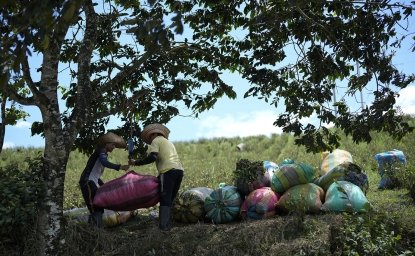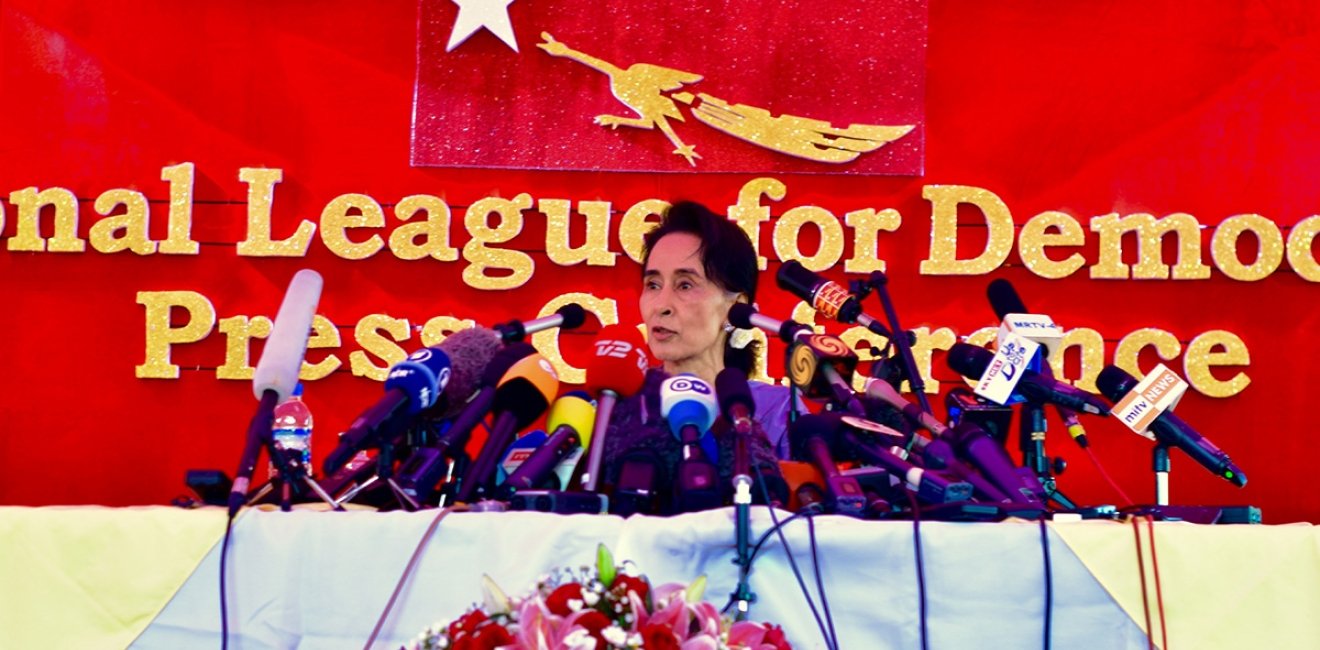
A blog of the Wilson Center
More than a thousand “scam dens” in Burma use trafficked labor to send scam texts and email messages to targets in dozens of countries—including both China and the United States.
In 2015, Myanmar—or Burma to many—seemed to be a “proof of concept” to the world’s democracy community… an example of a country moving from full military control into a promising, if imperfect, democracy. I was one of those on hand to witness those elections which gave Aung San Suu Kyi’s National League for Democracy a supermajority in the country’s parliament. It was an inspirational moment for anyone on hand to see the long lines of people (especially young people) making sure their voice was heard. Sadly, less than 10 years later, Burma’s military junta has regained its brutal grip on power, and the country is suffering badly under the world’s longest ongoing civil war. More than 49% of the population is living in poverty, entire regions lack any semblance of effective governance, and the country is fracturing along a number of ethnic lines. In short, Burma is a failing state.
All of this has created an opening for bad actors to secure a foothold—even a base of operations—for their activities. One such set of activities involves the creation of “scam centers” inside the country from which global cyber-scam operations are conducted beyond the reach of international authorities. Some of these operations have become known by the colorful term “Pig Butchering.” A recent Wall Street Journal report stated that the term is used because these scammers “fatten” their targets through days, weeks, and even months of cyber-powered conversations. The scammers work to build a relationship with their targets, making them ripe to have their money stolen— financial “butchering.” In some cases, victims end up losing their entire life savings after falling for the scheme. Between January 2020 and February 2024, victims worldwide lost more than $75 billion from these cybercrimes.
Cyber scamming is, simply put, a full-blown industry. According to the UN’s Office of the High Commissioner for Human Rights more than 120,000 people are being used to regularly send out scam messages from approximately 1,000 scam dens scattered across Burma’s border regions.
One of the darkest elements of this very dark subject is that the targets of cyber scamming aren’t the only victims. In many cases, the individuals behind the screens—the ones actually sending the messages out—are also victims… victims of human trafficking. Studies show that the scammers are trafficked from as far away as Ethiopia, Kenya, and the Netherlands. As the UN High Commissioner for Human Rights, Volker Türk, put it, “People who are coerced into working in these scamming operations endure inhumane treatment while being forced to carry out crimes. They are victims. They are not criminals.”
A recent report in Time Magazine told of a young Malaysian woman who applied for a high-paying position based in Burma’s capital with a conventional internet business. After she was told she had won the job, she was picked up in Burma by her new employer, only to be driven to a scam center near the country’s northern border with China. Along with 200 other victims from across Asia, she was forced to spend 17 hours each day trying to defraud foreigners, mainly Americans, out of their savings. Those who didn’t meet set quotas were punished with torture and physical assault.
A Wall Street Journal podcast told the story of a well-educated Ethiopian man who applied for a well-paying customer service job at a tech company in Thailand. When he arrived in Bangkok to begin work, he and other recruits had their passports confiscated and were taken to a scam center located on the Burma-Thailand border. Threatened with beatings, he was forced to work 16-hour days in front of various computer and phone screens. He said that he would often defraud 15 to 20 victims per day.
Burma’s scam centers are often based in the country’s border regions which are among the least governed parts of the country. But reports suggest that they also have at least the implicit backing of Myanmar’s military junta, which is willing to look the other way in exchange for the valuable tax revenue the central government is able to collect.
In my time with both the International Republican Institute, when I was an observer of the aforementioned 2015 elections, and the US Agency for International Development, when I met with Aung San Suu Kyi, I had an opportunity to visit several parts of Burma. It’s a beautiful, diverse, culturally rich country. The people are kind and warm; yet sadness and tragedy seem to follow every step in their journey. It’s a place of immense potential, but it has fallen short over and over again. All because of its governance.
As the saying goes, “elections have consequences.” So does the lack of elections.
This blog was researched and drafted with assistance from Chelsea Acheampong.
Author


Indo-Pacific Program
The Indo-Pacific Program promotes policy debate and intellectual discussions on US interests in the Asia-Pacific as well as political, economic, security, and social issues relating to the world’s most populous and economically dynamic region. Read more

Explore More in Stubborn Things
Browse Stubborn Things
Not-So-Renewable Energy in Zambia

Colombia's Cocaine Moment of Truth

There's Mining, Then There's Galamsey

